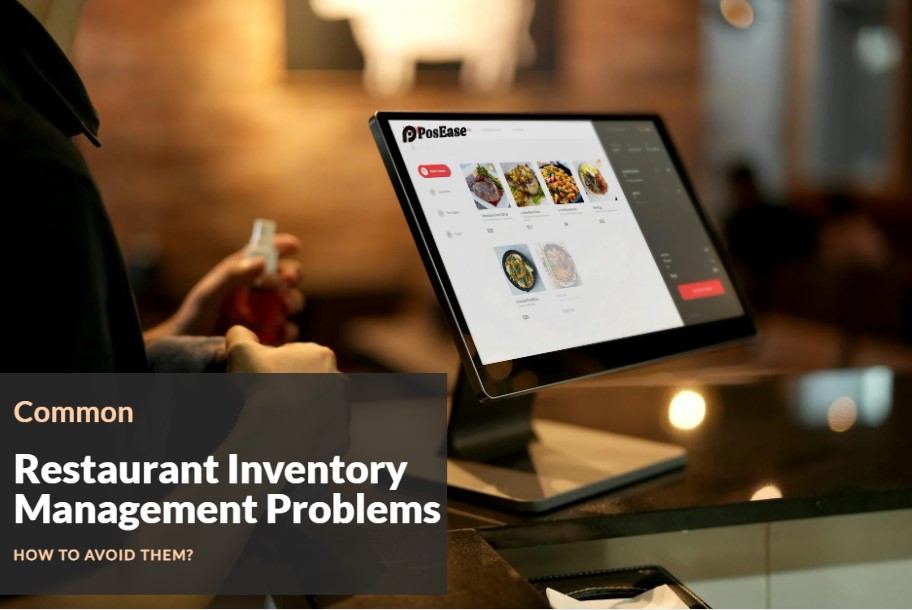Common Restaurant Inventory Management Problems and How to Avoid Them

The management of the inventory of a restaurant can be a difficult task. With the fluctuating demands of customers as well as perishable food items, the smallest of errors can cause costly issues. A proper inventory management system is essential to maintain profitability and ensure efficient operations. Without a clear inventory management system, restaurants risk overstocking, wastage, and even financial losses.
Restaurant owners are constantly faced with the problem of balancing demand and supply. On one hand, being short of crucial ingredients can cause disruption to the service and leave customers disappointed. In the opposite the other hand, overstocking could lead to loss, particularly for perishable items. This delicate balance emphasizes the importance of implementing solid procedures for managing inventory, which enable restaurants to monitor the level of inventory and improve their inventory.
In this blog, we explain the common restaurant inventory management challenges and tha way to resolve those issues.
Common Inventory Management Problems
Here are common inventory management problems that every restaurant faces:
1. Overstocking and Wastage
One of the biggest problems in the management of inventory at restaurants is the issue of overstocking. A lot of restaurants purchase excessive amounts of ingredients in order to ensure they don’t run out at peak hours. This can lead to spoilage, particularly with products that are perishable like vegetables, fruits, and dairy products. Overstocking does not just increase the amount of waste but also takes up capital that could be better used elsewhere.
2. Running Out of Stock
On the other hand, being understocked can be similarly detrimental. If essential ingredients aren’t available and the kitchen is unable to prepare them, it affects its ability to cook the most popular dishes on menus, which can lead to unhappy customers and a loss of sales.
3. Inaccurate Stock Counts
The manual inventory tracking process is susceptible to error, particularly in high-volume environments where accuracy frequently takes a backseat. Inconsistent inventory counts could lead to faulty purchasing decisions as well as insufficient levels of stock.
4. Lack of Forecasting
Many restaurants do not take into account seasonal changes, holidays, and special events when they plan their inventory. This can lead to excess stock or a shortage and both can affect profits.
5. Poor Vendor Management
Unreliable vendors could cause delays in deliveries or the supply of poor-quality ingredients, causing disruption to the operations of a restaurant and impacting the level of satisfaction of customers.
Effective Solutions for Inventory Management Issues
- Utilize Technology: Modern software solutions can help streamline the management of inventory. Restaurant POS systems equipped with features for managing inventory let you track the inventory levels, automate replenishment and create informative reports.
- Create Stock Levels: Set minimum and maximum levels of stock of each component. Stock levels will help you ensure that you have enough stock, without ordering too much.
- Train staff: Train your staff about proper inventory procedures which includes accurate inventory counts and the correct storage methods.
- Wastage Analysis: Track the waste to find patterns and take corrective measures. By reducing portions or enhancing the methods of preparation can reduce the amount of waste.
- Conduct Regular Audits: Regular check-ups on inventory can help spot the source of any discrepancies, and help keep stock levels exact. Audits can also reveal theft or pilferage concerns.
- Forecasting Demand: Review historical sales data to plan for seasonal trends and other special occasions. This helps reduce the risk of understocking or overstocking.
How PosEase Solves These Problems
PosEase is a modern restaurant POS with inventory management capabilities that are designed to make it easier and more efficient for your business operations. Here’s how PosEase solves common issues with inventory:
- Overstocking and waste: PosEase uses advanced tools for tracking and forecasting to assist restaurants with managing their inventory efficiently. Through analyzing the past and delivering live stock updates in real-time The software helps prevent overorders and ensures that the stock levels are at optimum levels.
- Running out of stock: Its automatic alerts inform you when levels of stock are below predefined thresholds. This feature allows for timely reordering and avoids stockouts, keeping your kitchen operating smoothly.
- Unreliable Stock Counts: PosEase eliminates the requirement to manually track stock by automatizing counts of stock. The real-time tracking feature of PosEase ensures accuracy in inventory records, which reduces human error while simplifying every step of the process.
- The absence of forecasting: With its sophisticated analysis and report capabilities PosEase aids restaurant operators predict demand based on previous data as well as seasonal patterns. This helps in better planning and reduces stock imbalances.
- poor vendor management: It allows you to efficiently manage relationships with vendors by monitoring delivery times along with vendor performance and the quality of the product. This guarantees a steady supply of top-quality ingredients.
Conclusion
A well-organized Restaurant POS with an inventory management system is the core of an efficient restaurant. In addressing common problems such as stockouts, overstocking, and incorrect numbers, you will boost the efficiency of your operation and cut expenses. Utilizing tools such as PosEase will ensure that you are able to track the level of inventory, manage the inventory efficiently, and concentrate on providing exceptional dining experiences for your patrons. If you have the right strategies and the right technology your restaurant will be able to succeed.
Search
Category
Recent Posts




